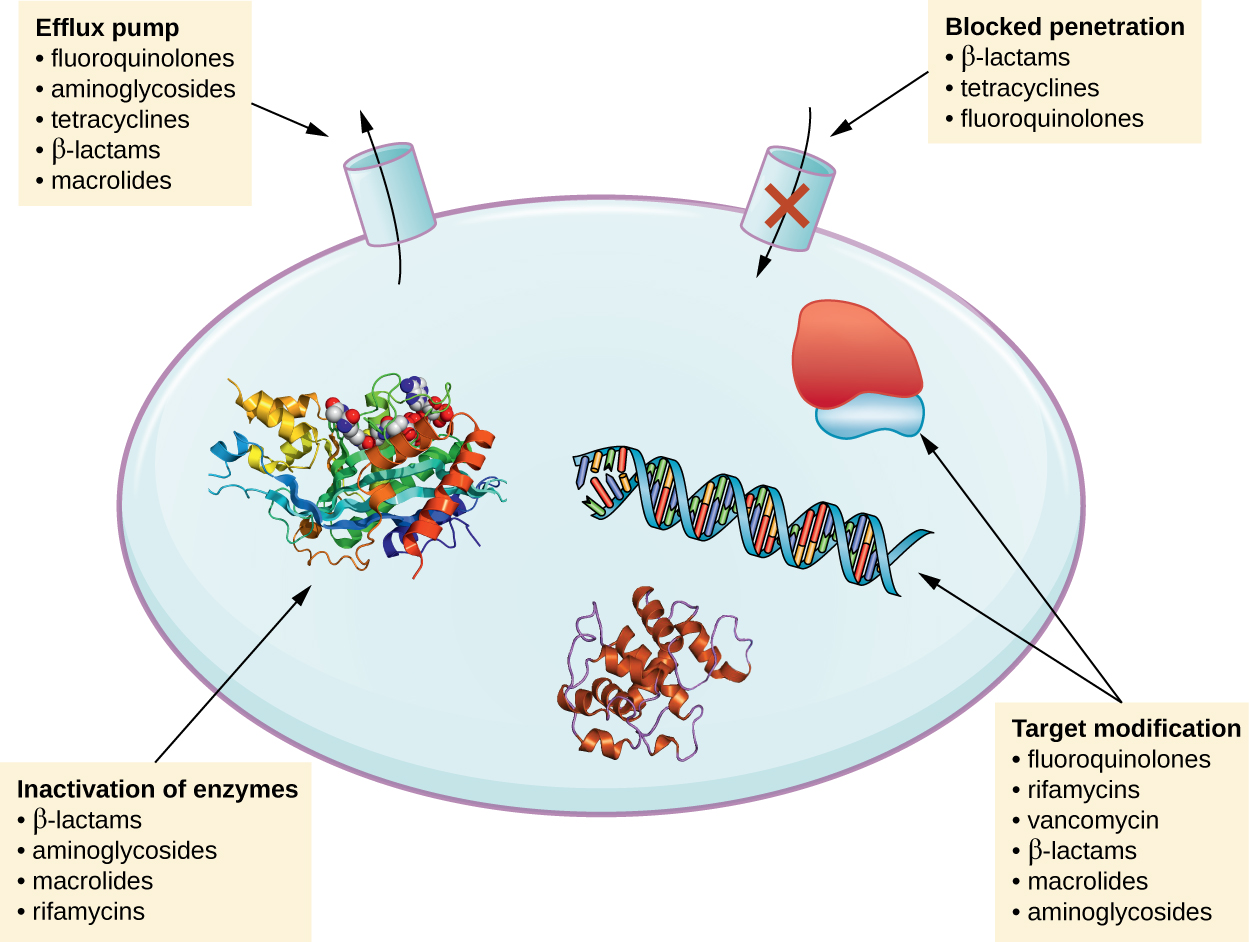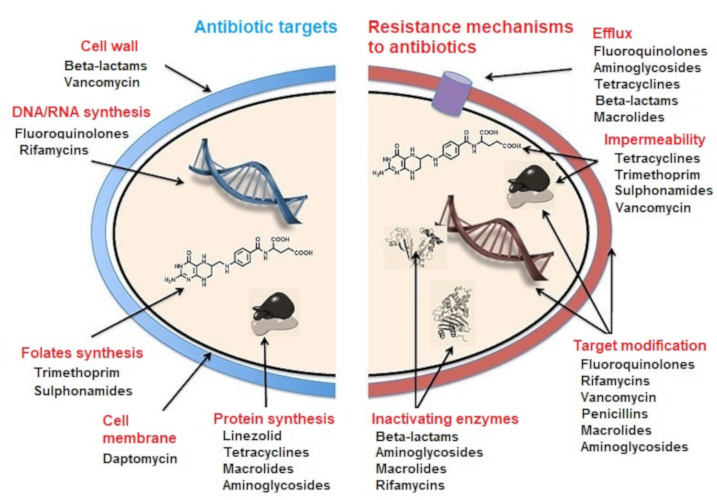5 Mechanisms of Antibiotic Resistance
Further studies ought to be dedicated to interaction mechanisms of ARGs MGEs and their bacterial. In addition adaptive antibiotic resistance of P.

11 7 Mechanisms For Resistance Biology Libretexts
New resistance mechanisms are emerging and spreading globally threatening our ability to treat common infectious diseases.

. This study discusses the impact of antibiotic resistance as a persistent. The acquisition of drug resistance by P. The species of the greatest clinical importance are Enterococcus faecalis and Enterococcus faecium.
Resistance to even one antibiotic can mean serious problems. It is estimated that the number of deaths due to antibiotic resistance will exceed ten million annually by 2050 and cost approximately 100 trillion USD worldwide 123Antibiotic resistance arises when bacteria are able to survive an exposure to antibiotics that would normally kill them or. The clinical importance of the genus Enterococcus is directly related to its antibiotic resistance which contributes to the risk of colonization and infection.
Although the resistance characteristics of these two species differ in important ways they can generally. Antimicrobial agents play a key role in controlling and curing infectious disease. Infections caused by resistant bacteria may require more care as well as alternative and more expensive antibiotics which may have more severe side effects.
Antimicrobial agents use different mechanisms against bacteria to prevent their pathogenesis and they can be classified as bactericidal or bacteriostatic. To better illustrate the temporal variation of antibiotic resistance on the MPs and in the receiving waters the ternary plots were used to analyze dynamic variation of genes within 4 weeks after MPs were relocated to the new receiving waters. Aeruginosa is a recently characterized mechanism which includes biofilm-mediated resistance and formation of multidrug-tolerant persister cells and is responsible for recalcitrance and relapse of infections.
Resistance Mechanisms Defense Strategies Resistance Mechanisms Defense Strategies Description. Restrict access of the antibiotic. This review highlights the mechanisms of antibiotic resistance in P.
Antibiotic use in livestock is the use of antibiotics for any purpose in the husbandry of livestock which includes treatment when ill therapeutic treatment of a group of animals when at least one is diagnosed with clinical infection metaphylaxis and preventative treatment prophylaxisAntibiotics are an important tool to treat animal as well as human disease. Antibiotic resistance is an urgent and growing global public health threat. Antimicrobial-resistant infections that require the use of second- and third-line treatments can harm patients by causing serious side effects such as organ failure and.
Read more in the factsheets about antimicrobial resistance. In this paper the authors discuss some mechanisms of antibiotic resistance such as changing the antibacterial agents uptake and biofilm formation as well as a wide range of approaches such as developing new generations of antibiotics. Resistant bacteria survive in the presence of the antibiotic and continue to multiply causing longer illness or even death.
Aeruginosa depends primarily on multiple intrinsic and acquired antibiotic resistance mechanisms including the biofilm-mediated formation of resistant and. These bacteria can. Germs restrict access by changing the entryways or limiting the number of entryways.
Gram-negative bacteria have an outer layer membrane that protects them from their environment. Soon after the discovery of the first antibiotic the challenge of antibiotic resistance commenced. Antibiotic resistance can affect anyone of any age in any country.
A growing list of infections such as. Antibiotic resistance is one of the biggest threats to global health food security and development today.

Mechanism Of Action Of Antibiotics Download Scientific Diagram

Antibiotics Antibiotic Resistance And Environment Encyclopedia Of The Environment

Antimicrobial Resistance Phenomenon Antimicrobial Resistance Phenomena Antimicrobial
0 Response to "5 Mechanisms of Antibiotic Resistance"
Post a Comment